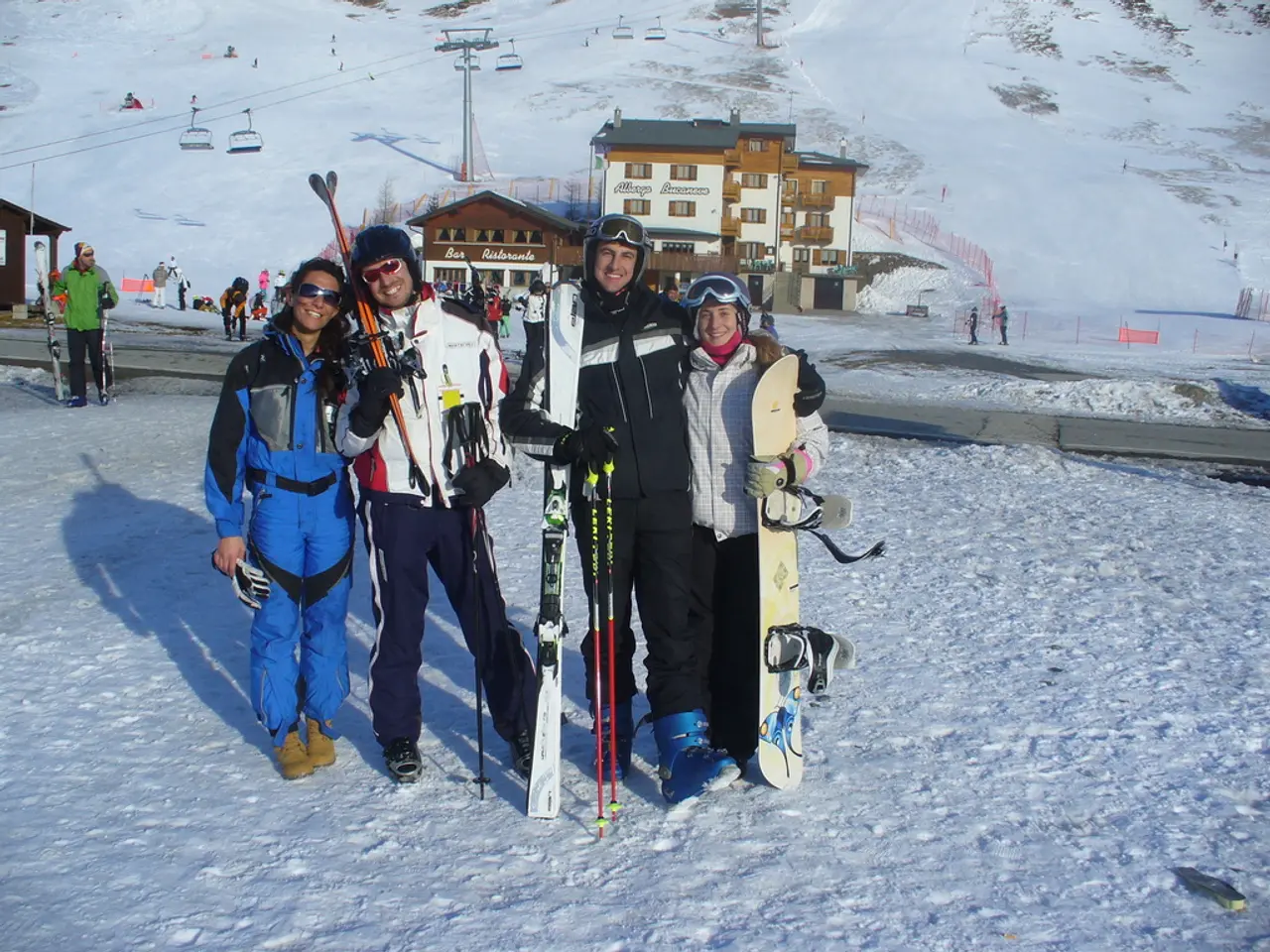Ski resort peak's visiting center officially starts operations at Shymbulak
Almaty, Kazakhstan, is witnessing a significant surge in eco-tourism development, as part of a broader strategy to expand natural and cultural tourism infrastructure, promote environmental sustainability, and involve local communities.
Vice-Premier Eraly Tugzhanov recently inspected the work of a modular infectious hospital in Almaty, but his visit also included the inspection of various tourist facilities. He visited the visitor centers at the base station "Medeu" and the highest point of the "Shymbulak" resort, as well as the future glamping zone Tenir Eco Hotel.
The "Shymbulak" ski and snowboard school, the largest in Kazakhstan, annually conducts over 10,000 lessons with more than 15,000 students. This year, two visitor centers have been built on the main attractions of the city with private funds. At the highest point of the "Shymbulak" ski resort, a visitor center was launched, offering information, souvenirs, equipment rental, instructor services, and guided tours. The Medeu visitor center, launched in early December, serves as the starting point for the "Health Trail" educational project in eco-tourism.
The Tenir Eco Hotel, set to open by the end of December, will provide panoramic views of the Zailiysky Alatau peaks. The eco-houses at Tenir Eco Hotel are fully assembled in Kazakh factories and equipped with recycling systems to preserve the environment.
The focus is on developing health and wellness tourism in light of the COVID-19 pandemic, allowing for mountain activities for post-rehabilitation, prevention, and immune system strengthening. The "Health Trail" project is designed for visitors of all ages.
The Alatau Amanaty project, launched in July 2025, includes the creation of a long national trail system featuring multiple tourism infrastructure sites such as glamping and camping areas, visitor centers, rescue stations, and venues for gastronomic and ethnocultural tourism. This project aims to develop a complete adventure tourism ecosystem and actively involve local rural communities economically. It is planned for completion within the next 1.5 years.
Large-scale development plans for the Almaty mountain cluster were announced by the Kazakh Prime Minister in July 2025. These plans focus on expanding existing resorts and developing new tourist zones, including areas such as Oy-Karagay and Butakovka, where modern ski and tourist infrastructure will be established. This development explicitly emphasizes hiking trails, cable cars, and service facilities with high environmental safety standards.
The city of Almaty is actively seeking private investments in the tourism sector. The "Medeu" visitor center includes a tourist information center, an "adventure office," and a food court. Information boards, stands, signs, benches, shelters, and eight tourist information points have been installed along the trails for navigation and planning.
Around 1000 km of mountain hiking trails have been digitized over three years in Almaty, with 25 trails totaling 325 km improved this year. Eleven trails in the Small and Big Almaty Gorges, totaling 171 km, are being improved this year.
The construction of a glamping zone is nearing completion, with an estimated total investment of approximately 1 billion tenge. Deputy Prime Minister Eraly Tugzhanov emphasized the importance of tourism in driving Almaty's economic development during his visit to tourist facilities in the city.
The 'Greenway to Konaev' action plan reflects urban and peri-urban ecological enhancement in the Almaty area through a 50-kilometer green corridor rehabilitation along a highway axis, improving green spaces and accessibility, which indirectly supports eco-tourism appeal by enhancing biodiversity and public amenities.
In summary, Almaty is committed to integrating eco-tourism development, including glamping zones, within a comprehensive strategy that expands natural and cultural tourism infrastructure, promotes environmental sustainability, and involves local communities. The main projects are the Alatau Amanaty national trail and mountain cluster expansion, both actively advancing with completion expected within the next couple of years.
The development of tourism facilities in Almaty, Kazakhstan, such as the Tenir Eco Hotel, is part of a broader strategy to promote eco-tourism, integrating lifestyle elements and travel experiences. This eco-hotel, set to open by the end of December, will focus on health and wellness tourism, offering panoramic views of the Zailiysky Alatau peaks while preserving the environment.
The upcoming Alatau Amanaty project aims to develop a complete adventure tourism ecosystem, featuring glamping and camping areas, visitor centers, rescue stations, and venues for gastronomic and ethnocultural tourism. This project will actively involve local rural communities economically, thus promoting environmental sustainability and the lifestyle aspects of eco-tourism.




